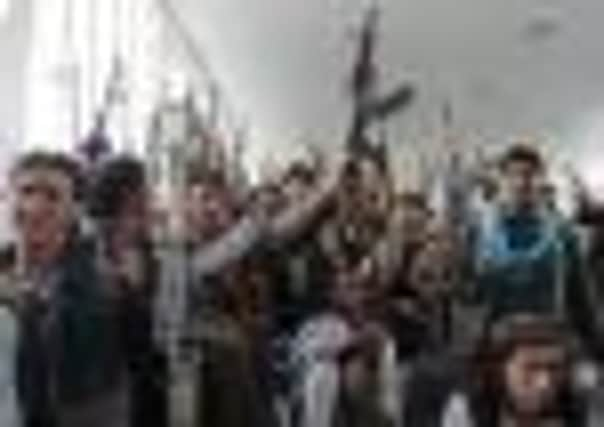Afghan war unwinnable, say most Britons


The ComRes poll was the first taken since six British soldiers were killed by a roadside bomb and came as the Afghan authorities made it clear that they are losing patience with Nato’s presence in their country following the massacre of 16 villagers by a renegade US soldier.
The soldier, a sergeant in his 30s, is being held for the incident which yesterday provoked Afghan MPs to pass a motion saying that civilians have lost patience with foreign troops.
Advertisement
Hide AdAdvertisement
Hide AdPrime Minister David Cameron, who flies out to Washington today for talks with President Barack Obama, described the killings as “an absolutely dreadful event”, but insisted that Britain and its allies would “stick to the plan”.
“We must stick to the plan and deliver the plan,” he said.
“This really is an absolutely appalling thing that has taken place and, of course, it will have its impact, but we must do everything we can to make sure it doesn’t in any way derail the very good work that American and British and other Isaf (International Security Assistance Force) forces are doing in Afghanistan.”
Yesterday, the Taleban was quick to exploit local anger over the deaths of the 16 Afghans – many of them children – vowing to seek revenge for the “blood-soaked and inhumane crime”.
The US army staff sergeant is currently in custody at a Nato base after reportedly handing himself in following the attacks in two villages near his base in Kandahar province.
The US authorities have promised a “rapid and thorough investigation” into the killings which have become the latest setback to hit the international military force in the country.
It comes after the burning of Korans by US soldiers triggered violent protests across the country, while last week six British soldiers died when their Warrior armoured vehicle was destroyed in a massive explosion.
Mr Cameron acknowledged that it was “very difficult” but said it was essential to continue the transition to Afghan forces ahead of the withdrawal of most international troops by the end of 2014.
“We have a good plan. We have a plan which is about transitioning Afghanistan over to Afghan control,” he said.
Advertisement
Hide AdAdvertisement
Hide Ad“The most important thing is that we stick to that plan, we deliver that plan and then we can bring our troops home, having done a good job in giving Afghanistan at least a chance of stability and prosperity and growth for the future.”
He was backed by the former head of the army, General Lord Dannatt, who acknowledged the killings had been a setback to the mission, but warned a “precipitate” withdrawal of international forces would be a mistake.
He said: “If we were to pull the plug and scuttle and run now, we would not be able to complete that process of handing over to the Afghans and we would undoubtedly prejudice all the good work we have done over the years at considerable cost in both blood and treasure.”
However, in the House of Commons, the veteran Labour MP David Winnick said that public support for what was increasingly seen as an “unwinnable war” was falling away.
“It won’t help the fight against terrorism, perhaps it even helps the terrorists,” he said.
The Pentagon said the soldier’s name would not be released while the investigation was going on, but added that there was “every indication” that he had acted alone.
US media reported officials as saying that he was attached to a unit based at Joint Base Lewis-McChord, in the north-western state of Washington. The same base was home to the so-called “kill team”, a rogue unit led by Sgt Calvin Gibbs that kept grisly souvenirs of Afghans they had killed.